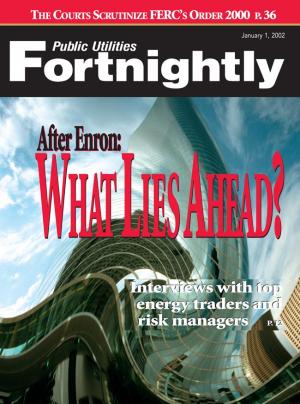A very odd departure, indeed.
A glimpse back at the period between Jeff Skilling's resignation in August and Enron's disclosure of its involvement in two limited partnerships in mid-October shows how utterly unprepared the financial community was for the Wall Street darling's historic collapse. In late spring, analysts began to question Enron's financial condition. Those questions grew into mild skepticism when Skilling made his mad dash for the door. All along, though, even during this two-month period of ambiguity before the dramatic final days, the financial community continued to bow before Enron's business model, never losing faith in the company's ability to recover from its stock slide.

Ken Lay's public statements didn't help to clear up matters. In an interview with BusinessWeek magazine in late August, he painted an extremely rosy picture of the company's position in the market. Asked by the magazine whether there was more than meets the eye to Skilling's sudden departure, Lay responded: "There are absolutely no problems that had anything to do with Jeff's departure. There are no accounting issues, no trading issues, no reserve issues, no previously unknown problem issues. The company is probably in the strongest and best shape that it has ever been in."
The lack of real information at the time left analysts scrambling for an accurate assessment of the company and created a confusing mess of commentary.

